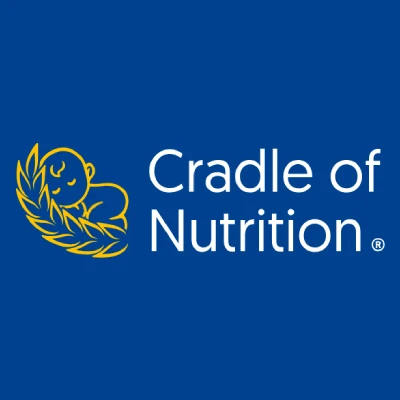
Essential Nutrition for Premature Babies: A Parent’s Guide

Cradle of Nutrition
- 3 minutes read
When babies are born prematurely (before 37 weeks), their nutritional needs are more complex. Premature babies require specialized care, and one of the most important aspects is their nutrition. Because they have smaller body reserves of nutrients and energy, they need a higher calorie intake, more protein for growth, and additional vitamins and minerals to compensate for their early birth. Without proper nutritional support, they are at risk for developmental delays, growth failure, and long-term health complications. Proper nutrition is crucial for their growth, development, and overall health.
1. Caloric and Protein Needs
Premature babies require more calories and protein than full-term infants to support rapid growth and development. Preterm formulas or fortified breast milk provide higher concentrations of calories and protein, helping babies gain weight and develop muscle and organ tissue.
- Protein-enriched formulas support tissue growth and immune function, essential for preterm infants.
2. Healthy Fats for Brain Development
Fat, particularly DHA (docosahexaenoic acid) and ARA (arachidonic acid), is vital for brain and nervous system development. Preterm formulas often include these healthy fats to support cognitive and visual development. Breast milk naturally provides these nutrients, making it the best option when available.
3. Vitamins and Minerals
Premature babies are at risk for vitamin and mineral deficiencies. They need additional iron, calcium, phosphorus, and vitamin D to support bone growth, immune health, and cognitive function.
- Iron helps prevent anemia, which is common in preterm infants.
- Calcium and phosphorus are essential for strong bones, while vitamin D helps absorb calcium.
4. Hydration
Preterm infants are more vulnerable to dehydration due to their immature kidneys. Breast milk and specialized formulas provide not just nutrition but also hydration. It’s important to monitor your baby’s fluid intake and urine output to ensure proper hydration.
5. Digestive Health
Premature babies often have an immature digestive system. Small, frequent feedings are recommended to help them absorb nutrients effectively. Fortified breast milk or preterm formulas are easier to digest and provide more concentrated nutrients.
6. Transitioning to Solids
Once your baby reaches 6 to 9 months of adjusted age (based on their expected due date, rather than their actual birth date), they may be ready to start solid foods. Iron-rich cereals, pureed fruits, and vegetables should be introduced gradually, but breast milk or formula should remain the main source of nutrition.
Nutrition is key to a premature baby’s growth and development. Focus on providing extra calories, protein, healthy fats, and essential vitamins and minerals. Work closely with healthcare providers to ensure your baby’s nutritional needs are met, whether through breast milk, fortified milk, or specialized formulas.
For more detailed guidance, always consult your pediatrician or neonatologist, as they can tailor the feeding plan based on your baby’s needs.
FAQ on Premature Baby Nutrition
How much should a premature baby be fed?
Premature babies need more frequent, smaller feedings than full-term babies. Consult your pediatrician to determine the appropriate amount for your baby.
Can premature babies be breastfed?
Yes, breastfeeding is ideal for preterm babies. Fortified breast milk may be necessary to meet their nutritional needs.
What formula is best for premature babies?
Preterm formulas are designed with higher calories, protein, and essential nutrients to support premature infants.
How can I tell if my baby is getting enough nutrition?
Monitor weight gain, hydration levels, and developmental milestones. Additionally, checking your baby’s diapers is a helpful indicator. Healthy diaper output (wet and soiled diapers) typically means your baby is well-hydrated and receiving adequate nutrition. Consult your pediatrician if you’re concerned.
By Erika Barabás
Sources:
- Neonatal Nutrition and Metabolism (S. L. Shaw et al., 2017)
- Pediatric ( M.Boda & E.Sulyok, Medicina, 2008)






